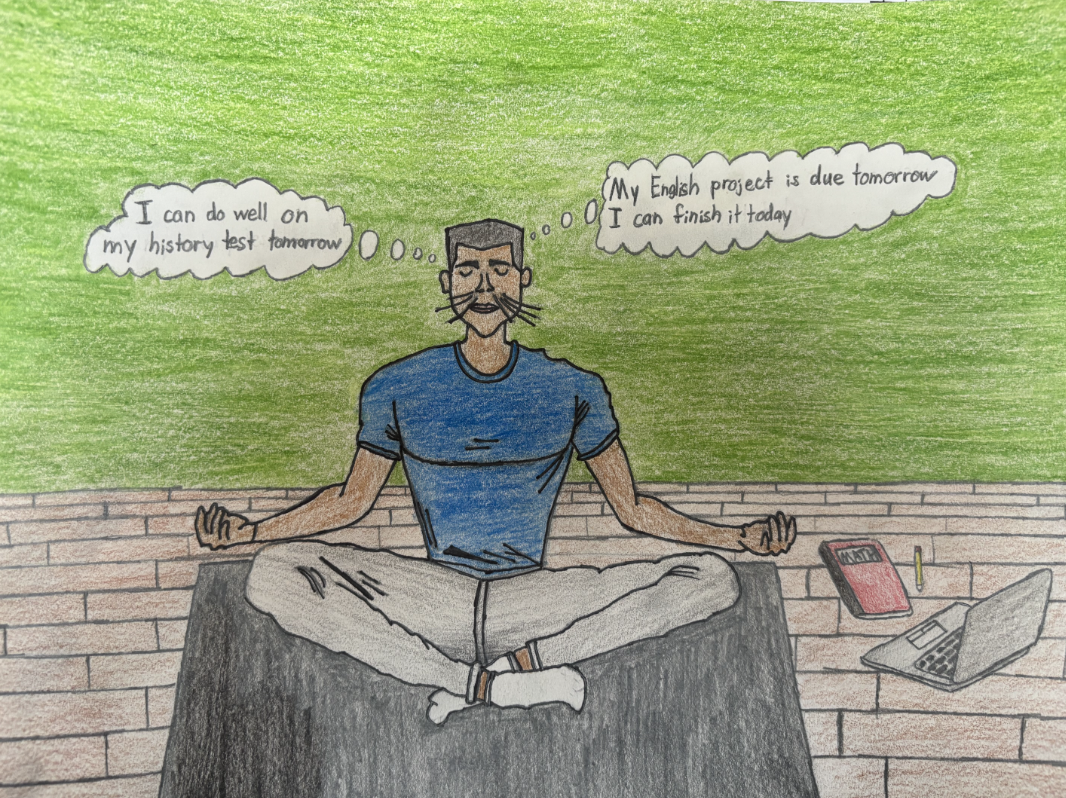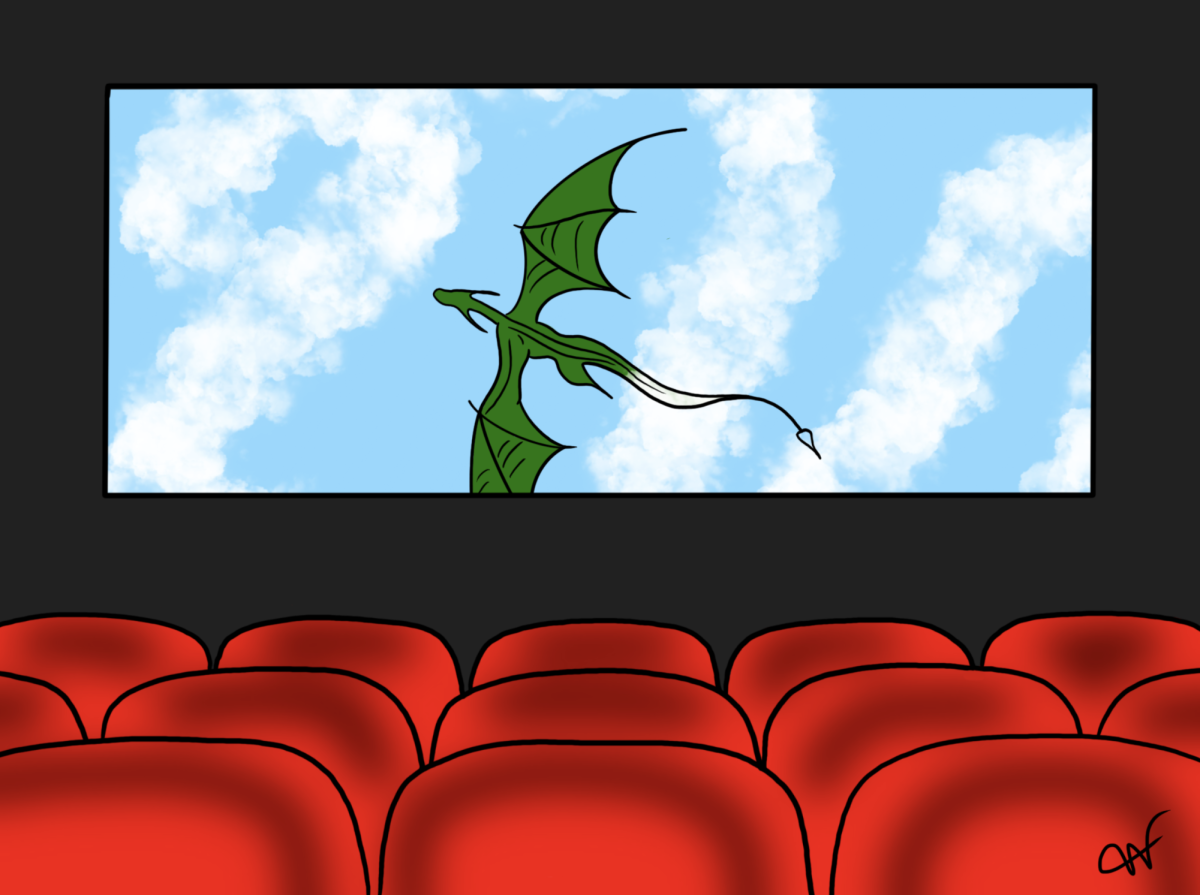It’s a breezy December morning, the air is crisp, fresh, and clean. From extreme deals on toys to the new holiday drinks, you can feel the anticipation of the holiday season in the atmosphere. You step outside to see the soft hazy sun cast its magical glow everywhere. The ground is lightly dusted with snow, and it feels like a fluffy cloud as you plant your feet into it. A white fog forms in front of your face as you exhale the smell of the holiday season. It’s so peaceful and quiet; it’s just like a winter wonderland.
Hoping to savor the winter spirit, you attempt to romanticize school as you walk through the open doors, thinking that today is going to be a good day. In reality, the second you step past the double doors, people are wild: running, pushing, trampling everything in their path. Have you ever felt like you were in the middle of a stampede rather than a school hallway? You push them off and try to navigate your way through what seems to be a jungle. It’s like the survival of the fittest, but with lockers slamming, students rushing, and papers flying everywhere.
Mindfulness is something everyone should implement in their daily lives. Whether it be journaling how we feel in a moment of mixed emotions or taking a few minutes to calm ourselves down when we get trampled in the hallway, actively being present throughout the day can greatly benefit a person. Mindfulness became a lifeline for me during a series of hectic and challenging school days. The hallway chaos was so intense one day that I felt my stress capacity for the day already bubbling over by second period, but I was able to regain my focus by simply taking deep breaths. Overall, mindfulness can reduce your anxiety by reminding you of what you’re doing in the present moment and helping you put out mind things that are out of your control.
You may be thinking: “Mindfulness at school? Isn’t that just a fancy way to say ‘sit quietly, close your eyes, but don’t fall asleep’?” Imagine you’re in the middle of history class, staring at men from the 17th century sporting powdered wigs, reading about conquests they made and other events that blur your brain. At that moment, it might be hard to try and understand what’s going on, but take a moment to pause. Quickly close your eyes––not for too long, because you don’t want your teacher to think you’re napping––and take a couple of deep breaths. Once you open your eyes, you will feel refreshingly bored, your attention restored back to the dusty textbook sitting in front of you.
Let’s face it; our attempts at mindfulness won’t always be flawless, but by putting in some effort, your concentration and focus could improve, thus potentially reducing any stress or anxiety you may have. Lets say, it’s time for the presentation you have in English about a book you read. I get it, presentations seem nerve wracking, especially when you are standing in front of the class, and you truly dread it. Your heart is pounding loudly, like a drum. Your palms are sweaty, and your mind is all jumbled up. You go up and forget everything you say and start to panic. Now, let’s go back a bit. Calming your nerves can make you feel more confident and more prepared. Like the previous example, taking a couple of breaths helps, but you should tell positive affirmations to yourself, to bring awareness of how you have put in a lot of effort and how there is nothing you cannot tackle. Simply saying, “I can do this, I am calm, and I will do amazing” can make you feel at ease and do well.
There are more ways to implement mindfulness, it’s not just breathing exercises that help. For this exercise, you need a pencil, a piece of paper or a post-it, a quiet environment (maybe the library), and a timer (your MacBook or phone). You are going to set the timer for a minute and put it away, somewhere where you cannot see the time. Don’t look at a clock or count the seconds. Just sit in that position for one minute. When you think a minute is up, check the timer. See if it is more or less, and note the difference in time. If you overestimate that minute, you may be inclined to want to accomplish more, schedule tasks but end up not doing them, or be very late with the deadlines. Alternatively, if you call it too soon, you may rush tasks, and end up not performing well or not doing them correctly. Being aware of the amount of time we have can benefit us, because we have more time to plan and can meet our deadlines.
In times of chaos like when you’re drowning in the French Revolution or you’re trying to make your way through the hallways, remember that mindfulness can be a secret weapon for calming yourself.






































